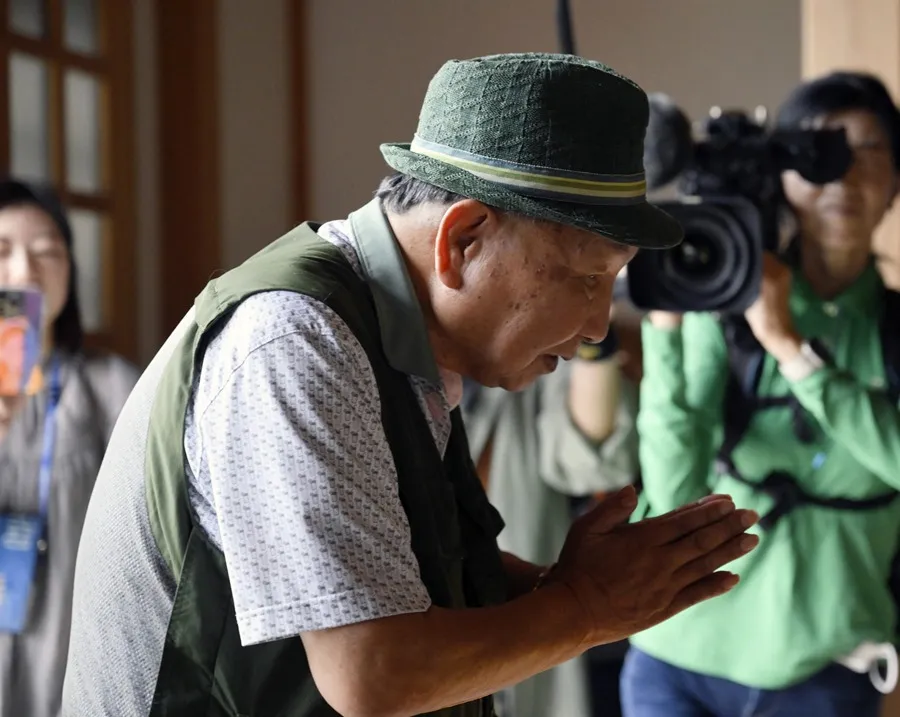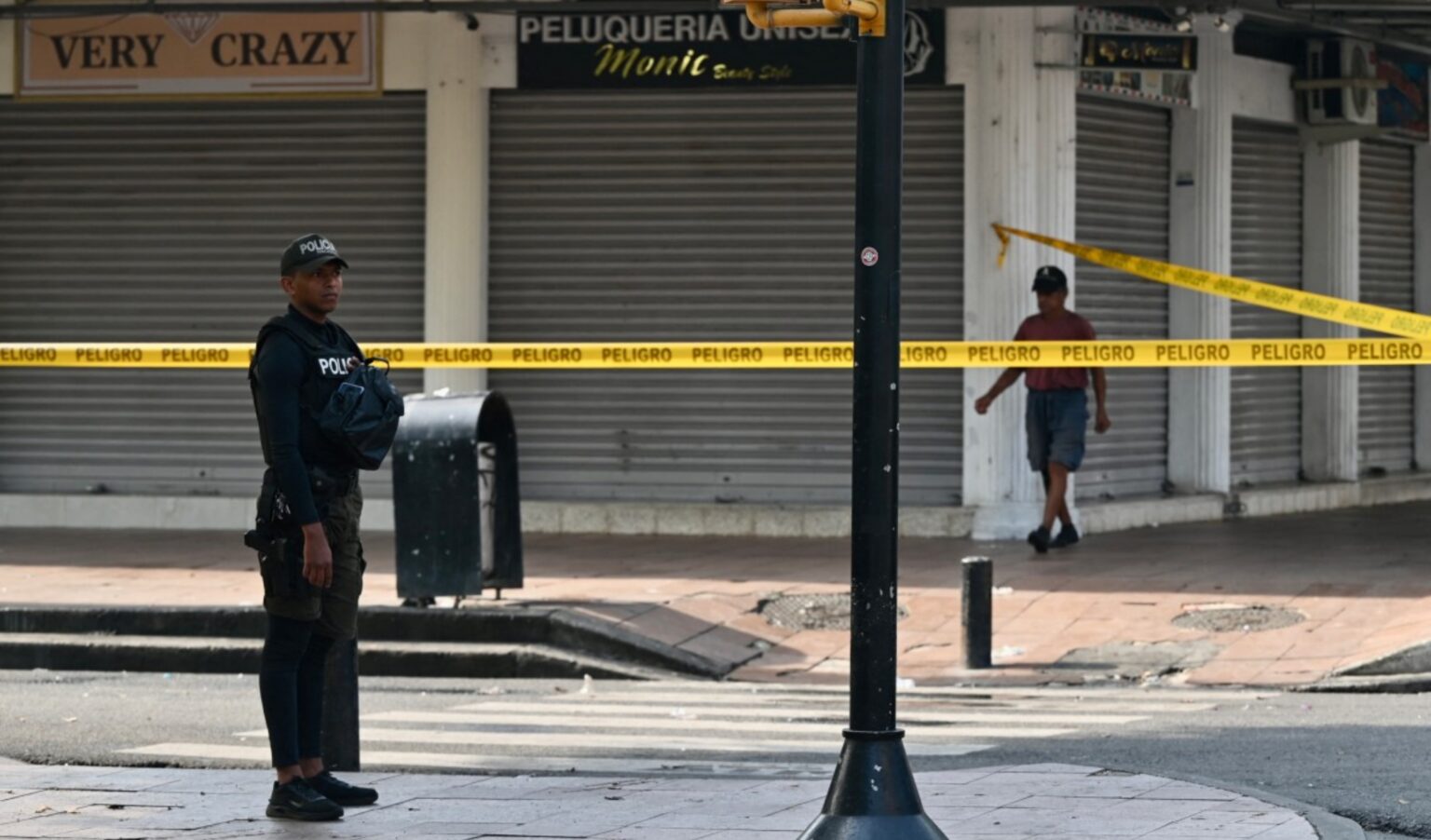International
Who is Iwao Hakamada, the inmate acquitted after 47 years waiting for a death sentence?

Former professional boxer, converted to Christianity in prison, Iwao Hakamada spent 47 years behing bars waiting for a death sentence that never came and from which the Japanese justice acquitted him this Thursday. It was the end of a tireless struggle to defend his innocence.
Hakamada (Shizuoka, 1936) was sentenced to death in 1968 after being accused of murdering two years earlier the owner of the miso factory (fermented soy) in which he worked, his wife and the couple’s two children and then burning his house.
He tirelessly defended his innocence on the grounds that the evidence that incriminated him was actually manufactured against him, mainly garments found in one of the company’s miso tanks, stained with blood and that matched his DNA. The Japanese justice has finally proved him right.
At 88 years old, with a weakened mental condition due to the almost half century he spent bands (so he holds a Guinness record), the Shizuoka District Court acquitted him this Thursday after the repetition of his trial, a procedure uncommon in Japan, but accepted for Hakamada in 2014.
The former Japanese boxer was released that year from prison, but the magistrates exempted him from appearing in the new trial due to his impaired mental condition. His sister, Hideko Hakamada, and his lawyer, Hideyo Ogawa, two of the pillars of the former convice, took over.
19 days and 228 hours of interrogation
Although he denied the facts when he was arrested in 1966, Hakamada took the charges on September 6 of the same year to “protect his life,” as he said at the time, on the nineteenth day of an interrogation that lasted an average of 12 hours a day.
He again denied having committed the crime in the first hearing of the initial trial and continued to do so in the thousand letters he sent to his family from prison.
The first was written in 1967 and was addressed to his mother, who died the following year although he did not know it until months later.
“It’s been half a year since I last saw you. I’m fine. I’m sorry my family is worried about me. I really have nothing to do with the Kogane Miso incident. I am innocent,” read the manuscript, compiled and published by the Japanese newspaper Asahi, along with the hundreds of letters that happened to the first one.
“They looked a little like my clothes, but there are so many clothes in the world that look like…”, Hakamada wrote before being sentenced in relation to the garments found in the miso tank.
Capital penalty
Hakamada was sentenced to death penalty because the blood with which the clothes found immersed in miso were stained matched his DNA, but the Japanese defended from the beginning that it was a fabricated evidence against him and appealed the sentence.
“I saw them (the blood-stained pants) in court. They seemed too small to me, no matter how I looked at them. If they don’t go well for me, the accusation against me will disappear,” Hakamada wrote in another of the letters to his family.
It was shown that the pants did not correspond to the size of the ex-contain, but the prosecutors and the authorities in charge of the investigation of the case argued that the clothes were small because Hakamada gained weight in prison.
Another of the former boxer’s arguments in the defense of his innocence was that the color of the blood was too dark, a thesis that prosecutors and investigators refuted claiming that the red had acquired a brownish tone by soaking the clothes in miso.
The appeal was rejected, but Hakamada requested in 1981 the repetition of the trial of his case, which was not accepted until 2014, after the prosecution revealed color photographs of the clothing that made the Shizuoka Court doubt the veracity of the evidence due to the color of the blood.
Hakamada’s release was ordered by the Japanese justice 17,388 days after his arrest, when a second trial was accepted, and the Japanese was released from prison at the age of 78.
A life in freedom with his sister
At the current age of 88, Hakamada lives in Hamamatsu, a city located in Shizuoka Prefecture, southwest of Tokyo, with his sister Hideko, three years older than him.
He continues to show symptoms of the “institutional psychosis” that was diagnosed in 2008, a mental illness that some prisoners develop and that manifests itself in the form of dizziness, headaches, nausea and paranoia. He also claims to be God.
International
Nine People Killed in Two Armed Attacks in Manabí, Ecuador

At least nine people were killed Monday in two nearly simultaneous armed attacks in the province of Manabí, located on Ecuador’s Pacific coast, one of the areas hardest hit by violence in the country, according to the National Police.
The first attack left seven people dead and took place in Camarones, a rural area of the Jama canton. The second occurred in the sector known as La Y, in the seaside town of Canoa, part of the San Vicente canton, where two people were killed.
According to preliminary reports, both incidents occurred early Monday morning when armed men intercepted the victims. Authorities said the motives behind the attacks remain under investigation.
The assault in Camarones happened around 1:15 a.m. local time, when a group of armed individuals stormed a ranch in the area. The victims have not yet been officially identified.
About 15 minutes later, in Canoa, two men traveling in a motorized taxi were intercepted by armed suspects riding motorcycles and shot. One of the victims was identified as a 28-year-old passenger, while the identity of the driver has not yet been confirmed.
The attacks occurred just days after another multiple homicide on February 12 at a ranch in San Juan de las Cucarachas, a rural area of the Santa Ana canton in Manabí, which left six people dead.
Manabí has been experiencing escalating insecurity linked to disputes among organized crime groups, including drug trafficking networks and territorial control conflicts. In response, the government has maintained a state of emergency in the province since August to address the surge in violence attributed to these criminal organizations.
International
Over 40 Million Affected by Major Snowstorm in Northeastern U.S.

More than 40 million people across the northeastern United States are facing a new major snowstorm this Monday, including residents of New York City, where local authorities have shut down roads to traffic.
The storm triggered widespread flight cancellations early in the morning and caused power outages affecting thousands of homes and businesses throughout the region.
New York City Mayor Zohran Mamdani banned non-essential vehicle travel at least until noon and ordered the closure of public schools as a precautionary measure. Authorities in neighboring states, including New Jersey and Rhode Island, imposed similar restrictions to ensure public safety.
This marks the second major winter storm to hit the East Coast in less than a month, leading to growing frustration among residents.
“I’m fed up. I don’t want to see another snowflake,” said Vincent Greer, a resident of Wildwood, New Jersey, as he shoveled accumulated snow from in front of his building.
Officials continue to urge residents to remain indoors, avoid unnecessary travel, and monitor local advisories as crews work to clear roads and restore power.
International
Ninth Victim Recovered After Deadliest U.S. Avalanche in Decades

Rescue teams in California on Saturday recovered the body of the ninth and final victim of a deadly avalanche in the Sierra Nevada mountains, according to the local sheriff’s office.
The avalanche struck a group of 11 skiers and four guides on Tuesday as they were returning from a three-day backcountry trip near Castle Peak, a 2,777-meter (9,111-foot) mountain and popular tourist destination on the U.S. West Coast.
Six people were rescued alive on Tuesday. Authorities said the incident marks the deadliest avalanche in the United States since 1981.
“All nine individuals who lost their lives in the February 17 Castle Peak avalanche have been safely recovered from the mountain,” the Nevada County Sheriff’s Office said in a statement.
“There are no words that can truly capture the magnitude of this loss, and our hearts grieve alongside the families affected by this catastrophic event,” Sheriff Shannan Moon said.
Officials had warned on Thursday that search operations would likely continue through the weekend due to severe weather conditions in the area.
Survivors were able to call for help shortly after the avalanche occurred. However, near-zero visibility and the risk of additional snow slides prevented rescue teams from reaching them for several hours.
-

 International3 days ago
International3 days agoNinth Victim Recovered After Deadliest U.S. Avalanche in Decades
-

 International4 days ago
International4 days agoTrump Defies Supreme Court With New 10% Global Tariff
-

 International5 days ago
International5 days agoThree Injured in Mail Package Explosion at Buenos Aires Gendarmerie Academy
-

 International5 days ago
International5 days agoU.S. Targets Members of Outgoing Boric Administration With Visa Revocations
-

 International2 days ago
International2 days agoOver 40 Million Affected by Major Snowstorm in Northeastern U.S.
-

 International2 days ago
International2 days agoNine People Killed in Two Armed Attacks in Manabí, Ecuador




























